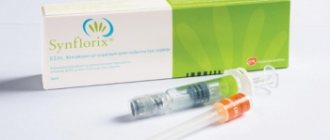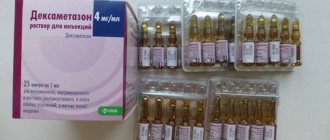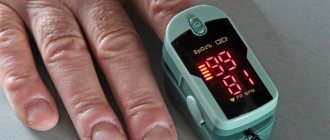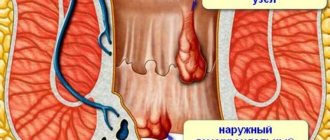The anti-inflammatory drug dexamethasone, which has been shown to be effective against complications of COVID-19, has side effects such as an increased susceptibility to thrombosis and the ability to cause stomach ulcers. Therefore, only specialists should prescribe it. Honored Doctor of Russia Mikhail Kagan told TASS about this.
Dexamethasone is a steroid drug with anti-inflammatory and immunosuppressive effects. It is used to treat rheumatoid diseases, asthma, allergies, chronic obstructive pulmonary disease and many other diseases. According to the results of the RECOVERY clinical trial, which involved more than 6 thousand patients with coronavirus infection, dexamethasone reduced the mortality rate of patients with COVID-19 who were on mechanical ventilation by a third.
After this, the head of the World Health Organization (WHO) called these results a “scientific breakthrough.” However, the study has not yet been peer-reviewed or published in any scientific journal. The authors promise to do this in the near future.
Why should dexamethasone be taken with caution?
“[Side effects] are the same as other drugs in this group - increased susceptibility to thrombosis, increased blood pressure, increased blood glucose levels, the ability to cause stomach ulcers, and so on. This is a serious drug, for serious situations with serious side effects. Therefore, only an experienced doctor will understand what’s what,” said Kagan.
The doctor explained that the drug, according to preliminary results of the study, does not affect the virus itself, it only reduces the excessive inflammation that occurs in the body after infection.
Kagan did not recommend using this drug as a preventive measure or in the first week after coronavirus infection, as it suppresses the immune system. “This can only help the virus,” the doctor explained.
In general, as Kagan explained, dexamethasone has been known to mankind since the 1960s and has long been registered for the treatment of autoimmune diseases in all countries, including the USSR and Russia. Traditional therapy for many autoimmune diseases, such as systemic lupus erythematosus, glomerulonephritis, bronchial asthma, Kawasaki syndrome, autoimmune thrombocytopenic purpura and others, is based on corticosteroids.
It is logical to use corticosteroids for coronavirus infection, the doctor noted, but there were no clear recommendations, since there was no previous evidence of the effectiveness of this drug against COVID-19. In addition, doctors are aware of the risks of using such steroids. At the same time, in the seventh version of the temporary guidelines of the Ministry of Health “Prevention, diagnosis and treatment of new coronavirus infection” dated June 3, there was a recommendation that this drug can be used in severe cases of the disease, Kagan noted.
“It should be noted that in the UK the dose of dexamethasone was used significantly lower than that recommended by our Ministry of Health - 6 mg per day (in domestic recommendations - 20 mg per day. I think that the British managed to find the optimal dose, which already provides a positive effect and minimizes side effects “, concluded the doctor.
Dexamethasone
Use during pregnancy and breastfeeding
During pregnancy (especially in the first trimester), as well as during lactation, dexamethasone is used taking into account the expected therapeutic effect and negative effect on the fetus. With long-term therapy during pregnancy, the possibility of fetal growth disturbances cannot be excluded. If used at the end of pregnancy, there is a risk of atrophy of the adrenal cortex in the fetus, which may require replacement therapy in the newborn.
Use for liver dysfunction
Use with caution in severe chronic liver failure.
Use for renal impairment
Use with caution in severe chronic renal failure.
Use in children
Contraindications for external use: children under 2 years of age, for itching in the anus - up to 12 years.
special instructions
Caution should be used in case of parasitic and infectious diseases of a viral, fungal or bacterial nature (currently or recently suffered, including recent contact with a patient) - herpes simplex, herpes zoster (viremic phase), chicken pox, measles, amoebiasis, strongyloidiasis (established or suspected), systemic mycosis;
active and latent tuberculosis. Use for severe infectious diseases is permissible only against the background of specific therapy. It should be used with caution within 8 weeks before and 2 weeks after vaccination, with lymphadenitis after BCG vaccination, with immunodeficiency conditions (including AIDS or HIV infection).
Use with caution in diseases of the gastrointestinal tract: gastric and duodenal ulcers, esophagitis, gastritis, acute or latent peptic ulcers, recently created intestinal anastomosis, nonspecific ulcerative colitis with the threat of perforation or abscess formation, diverticulitis.
Should be used with caution for diseases of the cardiovascular system, incl. after a recent myocardial infarction (in patients with acute and subacute myocardial infarction, the necrotic focus may spread, slowing down the formation of scar tissue and, as a result, rupture of the heart muscle), with decompensated chronic heart failure, arterial hypertension, hyperlipidemia), with endocrine diseases - diabetes mellitus ( including impaired tolerance to carbohydrates), thyrotoxicosis, hypothyroidism, Itsenko-Cushing's disease, with severe chronic renal and/or liver failure, nephrourolithiasis, with hypoalbuminemia and conditions predisposing to its occurrence, with systemic osteoporosis, myasthenia gravis, acute psychosis , obesity (III-IV degree), with poliomyelitis (with the exception of the form of bulbar encephalitis), open- and closed-angle glaucoma.
If intra-articular administration is necessary, it should be used with caution in patients with a general severe condition, ineffectiveness (or short duration) of the action of 2 previous administrations (taking into account the individual properties of the GCS used).
Before and during GCS therapy, it is necessary to monitor a general blood count, glycemic levels and plasma electrolyte levels.
For intercurrent infections, septic conditions and tuberculosis, simultaneous antibiotic therapy is necessary.
Relative adrenal insufficiency caused by dexamethasone may persist for several months after its discontinuation. Taking this into account, in stressful situations that arise during this period, hormonal therapy is resumed with the simultaneous administration of salts and/or mineralocorticoids.
When using dexamethasone in patients with corneal herpes, the possibility of corneal perforation should be kept in mind. During treatment, it is necessary to monitor intraocular pressure and the condition of the cornea.
With the sudden withdrawal of dexamethasone, especially in the case of previous use in high doses, a so-called withdrawal syndrome occurs (not caused by hypocortisolism), manifested by anorexia, nausea, lethargy, generalized musculoskeletal pain, and general weakness. After discontinuation of dexamethasone, relative adrenal insufficiency may persist for several months. If stressful situations arise during this period, GCS is prescribed (according to indications), if necessary in combination with mineralocorticoids.
During the treatment period, monitoring of blood pressure, water and electrolyte balance, peripheral blood picture and glycemic level, as well as observation by an ophthalmologist is required.
In children, during long-term treatment, careful monitoring of the dynamics of growth and development is necessary. Children who during the treatment period were in contact with patients with measles or chickenpox are prescribed specific immunoglobulins prophylactically.
How were the clinical trials conducted?
The RECOVERY study, which began in March 2021, involved more than 6.4 thousand patients with coronavirus infection. Of these, 2.1 thousand people were randomly selected and given 6 mg of dexamethasone per day for ten days. The remaining participants received the usual treatment in such cases.
The results showed that this immunosuppressant reduced the number of deaths among patients with severe forms of COVID-19: by a third among patients on ventilation and by 20% among those who needed supplemental oxygen.
Non-magic wand
Dual purpose: the “elixir of youth” was tested for the treatment of COVID-19
Antioxidant SkQ reduces the likelihood of damage to internal organs, blood clots and strokes
Despite WHO statements, the drug itself will not be a “magic wand” for coronavirus, a leading researcher at the Laboratory of Molecular Biology at Moscow State University told Izvestia. M.V. Lomonosov Roman Zinovkin.
“Its use cannot be considered a scientific breakthrough; it is simply a fairly logical move dictated by the characteristics of COVID-19,” the scientist emphasized. — First of all, the drug is an immunosuppressant. When a person has an infection, giving them immune suppressants is an unusual solution. But in severe cases of COVID-19, when the body's own immune system begins to destroy the body, this approach appears to work.
At the same time, in patients treated with dexamethasone, the risk of secondary bacterial pneumonia increases, which will develop more actively against the background of suppressed immunity. In addition, it is possible that antibodies to SARS-Cov-2 will be synthesized worse - in smaller quantities than without this drug. As a result, a person who has had an infection and taken dexamethasone has a higher chance of getting sick a second time. This medicine can only be used for patients in serious condition - on mechanical ventilation and with oxygen support, explained Roman Zinovkin.
Photo: IZVESTIA/Zurab Javakhadze
Doctors themselves say that there is nothing unexpected about the fact that this medicine turned out to be effective. It is used for various life-threatening conditions, including lung pathologies, emergency physician Andrei Ignatov told Izvestia.
— Dexamethasone is the drug of choice, the so-called therapy of despair. It is used for health reasons to stop acute inflammation,” the specialist noted. — At the same time, like any hormones, this medicine has serious side effects.
Non-Covid fate: patients with arthritis and lupus are running out of medications
Hydroxychloroquine disappeared in March - at the height of the coronavirus epidemic
In particular, with prolonged use, the normal functioning of the patient’s own adrenal glands may be disrupted. Also, taking the drug temporarily increases blood sugar, which will contribute to weight gain and, in extreme cases, the development of diabetes. Another serious limitation is that glucocorticosteroids can cause osteoporosis. Dexamethasone removes calcium from bones, which makes them more brittle. In this connection, it is possible to develop cataracts, glaucoma, and even mental problems may arise.
Dexamethasone-vial
Glucocorticosteroid (GCS) is a methylated derivative of fluorprednisolone, inhibits the release of interleukin-1, interleukin-2, interferon gamma from lymphocytes and macrophages. It has anti-inflammatory, antiallergic, desensitizing, antishock, antitoxic and immunosuppressive effects.
Suppresses the release of adrenocorticotropic hormone (ACTH) and beta-lipotropin by the pituitary gland, but does not reduce the content of circulating beta-endorphin. Inhibits the secretion of thyroid-stimulating hormone (TTT) and follicle-stimulating hormone (FSH).
Increases the excitability of the central nervous system, reduces the number of lymphocytes and eosinophils, increases the number of red blood cells (stimulates the production of erythropoietin).
Interacts with specific cytoplasmic receptors and forms a complex that penetrates the cell nucleus and stimulates mRNA synthesis; the latter induces the formation of proteins, incl. lipocortin, mediating cellular effects. Lipocortin inhibits phospholipase A2, suppresses the release of arachidonic acid and suppresses the synthesis of endoperoxides, prostaglandins, leukotrienes, which contribute to inflammation and allergies.
Protein metabolism:
reduces the amount of protein in plasma (due to globulins) with an increase in the albumin/globulin ratio, increases the synthesis of albumins in the liver and kidneys; enhances protein catabolism in muscle tissue.
Lipid metabolism:
increases the synthesis of higher fatty acids and thyroglobulin (TG), redistributes fat (accumulation of fat mainly in the shoulder girdle, face, abdomen), leads to the development of hypercholesterolemia.
Carbohydrate metabolism:
increases the absorption of carbohydrates from the gastrointestinal tract; increases the activity of glucose-6-phosphatase, leading to an increase in the flow of glucose from the liver into the blood; increases the activity of phosphoenolpyruvate carboxylase and the synthesis of aminotransferases, leading to the activation of gluconeogenesis.
Water-electrolyte metabolism:
retains sodium ions and water in the body, stimulates the excretion of potassium ions (mineralocorticosteroid activity), reduces the absorption of calcium ions from the gastrointestinal tract, “washes out” calcium ions from the bones, increases the excretion of calcium ions by the kidneys.
The anti-inflammatory effect is associated with inhibition of the release of inflammatory mediators by eosinophils; inducing the formation of lipocortin and reducing the number of mast cells that produce hyaluronic acid; and also with a decrease in capillary permeability; stabilization of cell membranes and organelle membranes (especially lysosomal ones).
The antiallergic effect develops as a result of suppression of the synthesis and secretion of allergic mediators, inhibition of the release of histamine and other biologically active substances from sensitized mast cells and basophils, a decrease in the number of circulating basophils, suppression of the development of lymphoid and connective tissue, a decrease in the number of T- and B-lymphocytes, mast cells , reducing the sensitivity of effector cells to allergy mediators, suppressing antibody formation, changing the body’s immune response.
In chronic obstructive pulmonary diseases (COPD), the action is based mainly on inhibition of inflammatory processes, inhibition of development or prevention of swelling of the mucous membranes, inhibition of eosinophilic infiltration of the submucosal layer of the bronchial epithelium, deposition of circulating immune complexes in the bronchial mucosa, as well as inhibition of erosion and desquamation mucous membrane. Increases the sensitivity of beta-adrenergic receptors of small and medium-caliber bronchi to endogenous catecholamines and exogenous sympathomimetics, reduces the viscosity of mucus by inhibiting or reducing its production.
Antishock and antitoxic effects are associated with an increase in blood pressure (BP) (due to an increase in the concentration of circulating catecholamines and restoration of the sensitivity of adrenergic receptors to them, as well as vasoconstriction), a decrease in the permeability of the vascular wall, membrane protective properties, and activation of liver enzymes involved in the metabolism of endo- and xenobiotics .
The immunosuppressive effect is due to inhibition of the release of cytokines (interleukin-1 and interleukin-2, interferon gamma) from lymphocytes and macrophages.
Suppresses the synthesis and secretion of ACTH and, secondarily, the synthesis of endogenous corticosteroids. Inhibits connective tissue reactions during the inflammatory process and reduces the possibility of scar tissue formation.
The peculiarity of the action is significant inhibition of pituitary function and the almost complete absence of mineralocorticosteroid activity. Doses of 1-1.5 mg/day inhibit the adrenal cortex; biological half-life is 32-72 hours (duration of suppression of the hypothalamic-pituitary-adrenal system).
In terms of the strength of glucocorticosteroid activity, 0.5 mg of dexamethasone corresponds to approximately 3.5 mg of prednisone (or prednisolone), 15 mg of hydrocortisone or 17.5 mg of cortisone.



